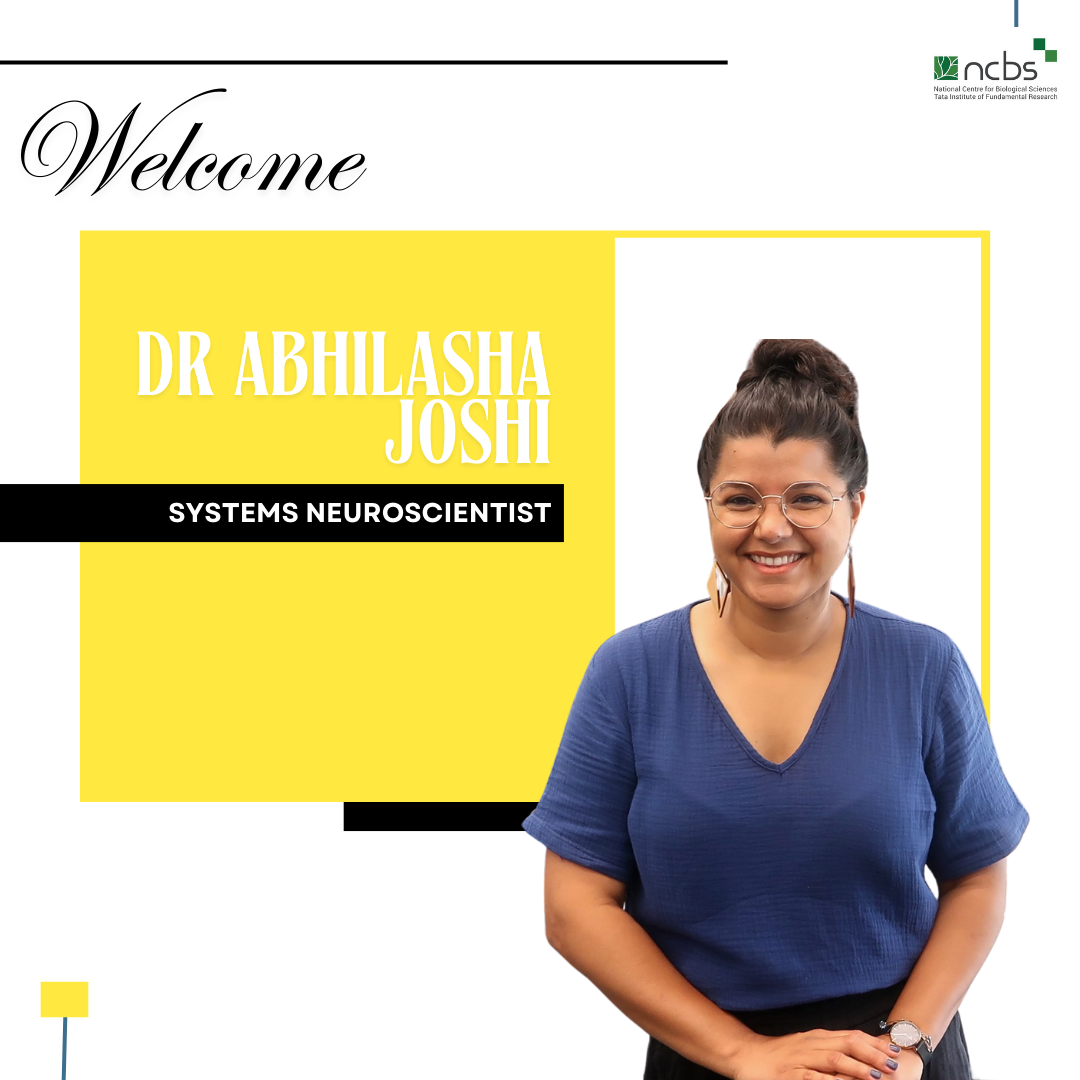Abhilasha Joshi has been fascinated by science, geography, and history growing up. During her initial years of high school learning, she was certain that her goal was to find a cure for lymphoma after she lost her cousin to the disease. “Can’t we cure it? I asked the doctor. That’s where science is right now, he said”, tells Abhilasha. Left with more questions than answers, “That’s the time I wanted to become a scientist”, she adds.
As she deepened her understanding of science during her undergraduate years at IISER Mohali, her curiosity and passion pivoted from cancer to evolutionary biology before she decided to focus on networks of neurons that interact to enable the organism to see, decide, and move.
“I was always more interested in what a single organism was doing and why, rather than studying populations of animals. That’s when I was steered toward neuroscience,” Abhilasha explains. Reflecting on her journey from lymphoma research to evolution and finally to neuroscience, she adds, "It’s been quite a complete circle."
Abhilasha has been fascinated by the synchronisation of cognition and locomotion in the hippocampus, part of the brain involved in learning, memory and spatial representation.
On the torrent of fascinating ideas she has produced over the past decade- Abhilasha won The Peter and Patricia Gruber International Research Award from the Society for Neuroscience in 2023 for outstanding research and educational pursuit in an international setting on the Rapid synchronisation between internal cognitive representations and the stepping rhythm”. A Simons Foundation Fellows to Faculty awardee– Abhilasha is a systems neuroscientist who has joined as an Assistant Professor at the National Centre for Biological Sciences starting this month.
"Dr Abhilasha Joshi brings a new paradigm to NCBS’s research in the area of neuroscience. She wants to understand dynamics of cognitive computations in realtime during complex behavioural actions. Studying the same animals across different time in their lifespan, Dr Joshi aims to study how these cognitive abilities of the brain alter with age. This is truly an interdisciplinary approach combining neuroscience, behavior, biomechanics, and computational methods", says LS Shashidhara, Director, NCBS.
Through her research, Abhilasha looks at how the neural network in the hippocampus computes a spatial map of the space and helps the animals navigate that space in real-time and how these interactions alter as animals age. Abhilasha’s research explores how neural networks in the hippocampus create a spatial map, helping animals navigate their surroundings in real-time, and how these neural interactions change as animals age. One of the most exciting discoveries in this field, she says, is that the frequency at which rats represent space and cognitive variables in the hippocampus matches their running rhythm. Both their internal cognitive processes and stepping rhythm occur at eight hertz. “This suggests that cognitive systems and physical movement, once considered separate, are tightly linked on an incredibly fast timescale. It’s not trivial that these frequencies match so perfectly,” she says.
Abhilasha recounts a pivotal moment during her PhD when she realised this connection. “I was looking at a clip I put together for my talk and noticed how the mice’s stepping mirrored the firing of neurons coordinating the eight-hertz theta oscillation. It made perfect sense—they had to be linked. For an animal making split-second decisions, like running from a predator, cognition and action have to happen simultaneously,” she explains.
After completing her PhD at the University of Oxford, Abhilasha continued her postdoctoral work on cognition and movement at the University of California, San Francisco, and later in Lisbon, where she spent her final days as a visiting scientist before relocating to India this past August.
Reflecting on her global academic journey, Abhilasha highlights the pivotal role her PhD advisor, Peter Somogyi, and others played in supporting her along the way. She observes that while funding opportunities, resources, and academic cultures differ from place to place, your experience in science—whether in India or abroad—largely depends on the people around you. These experiences can range from being part of an inspiring and supportive community to navigating more challenging, less welcoming environments.
"Each of my experiences has motivated me to be intentional about fostering a supportive, healthy environment in my lab, guided by a clear code of conduct," she says. Recalling her own experience of spending 12-14 hours in the lab during her PhD before being advised otherwise, Abhilasha adds, "Having clear expectations and open conversations with lab members can lead to more productive and positive outcomes."
At NCBS, her lab will focus on understanding how internal cognitive and external physiological processes change with ageing and understanding the fast timescale interactions between the two could promote healthy longevity. This research could have a significant translational impact, which will be a central goal of her lab.
Abhilasha also encourages students to set personal equity goals alongside their scientific ones, such as increasing the visibility of Indian academia internationally or making science more accessible through outreach. "Our contribution to science will be a blend of both," she says. She strongly advocates for open discussions about the publication process and authorship, believing it’s crucial to address the timing of publications from a student welfare perspective. Inspired by models like eLife's open peer review, she hopes to contribute to a system that combines the speed and transparency of preprints with expert commentary.
Abhilasha looks forward to working with enthusiastic graduate students who would like to be part of creating and experimenting with healthy working environments.










0 Comments